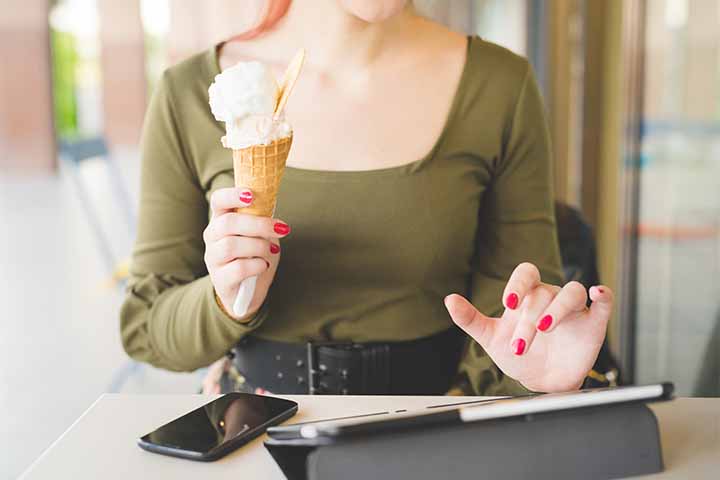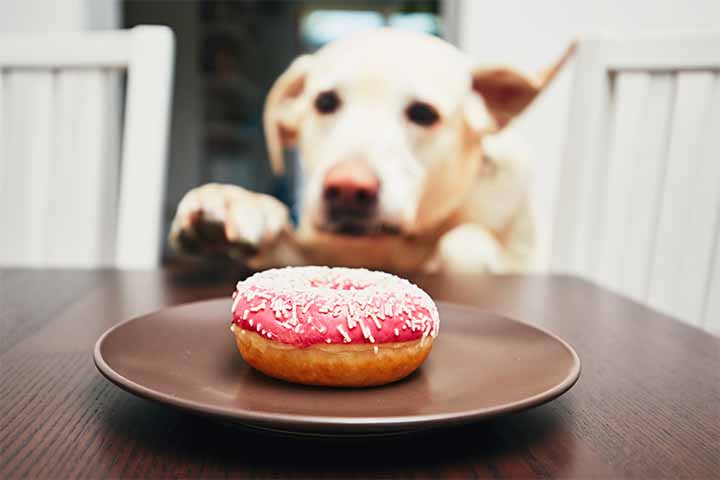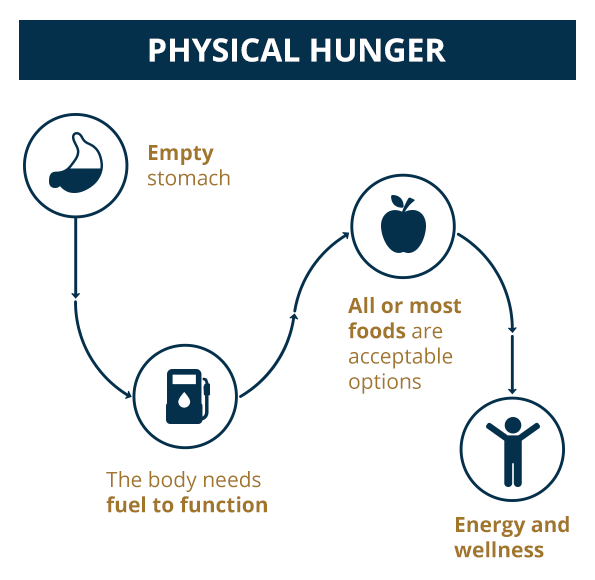26 Oct 2018
Hungry or Anxious? Kicking Your Emotional Eating Habit
You have a work deadline approaching and you just had an argument with your significant other. Or maybe you’re suffering from an anxiety disorder. You know you should avoid sugary snacks or salty treats, and you had a balanced breakfast that morning, but somehow you can’t help having two donuts at the office meeting. You realize this is a bad decision that you’ll regret, but it’s as though a magnetic field that you can’t resist is pulling you toward the donuts...and the name of this invisible force isn’t hunger, exactly.
Does this sound like you? If so, you might be an anxious eater. In other words, you’re not just consuming food in order to nourish your body or to indulge in the pleasure of a good meal, but to suppress anxious feelings, whether they’re caused by a stressful situation or a chronic condition such as Generalized Anxiety Disorder (GAD).


There are several reasons why we might look to the snack cabinet when we’re anxious. When we eat, we’re engaging the parasympathetic nervous system (PSNS), which simulates the "rest-and-digest" activities that take place when the body is at rest. These associations between food and comfort are deep-seated and can be traced back to infancy, when our mothers nursed us to calm us and help us sleep.
The sympathetic nervous system, on the other hand, exacerbates anxious feelings by speeding heart rate, narrowing the blood vessels, and raising blood pressure as part of our response to stress. The sources of stress can be physical, such as an injury or illness, or psychological, like a conflict at work or in your relationship, or money problems. “When stress presents itself, the body gets ready to respond. This stage of preparation is referred to as ‘fight-or-flight’. In the fight or flight response, several hormone levels rise markedly and the body begins to direct its energy storage—glucose and fats—toward cell function. These cells are then prepared to fight against or escape from danger,” explains the American Diabetes Association (ADA).
A 2012 study conducted by the University of North Carolina - Chapel Hill surveyed the eating habits of college-age women, assessing the links between anxiety and binge eating, an extreme form of overeating defined by the Mayo Clinic as “a serious eating disorder in which you frequently consume unusually large amounts of food and feel unable to stop eating.” The study found that binge eating (and not other habits, such as dieting), increased along with anxiety levels. And anxiety has long been associated with eating disorders: according to the National Eating Disorder Association (NEDA), 48-51% of people with anorexia and 54-81% of people with bulimia are also diagnosed with an anxiety disorder.
Of course, not all cases of anxious eating are related to eating disorders nor do they pose such dangerous health risks. But even occasional anxious eating can interfere with our ability to lose weight or eat healthily and contribute to our feelings of guilt and negativity. Most importantly, eating doesn’t address or resolve the underlying causes of our anxiety; often, it makes it worse. The first step to kicking the habit is learning to recognize anxious eating before it happens.
Emotional Eating versus “Physical” Eating
Anxious eating falls under the larger umbrella category of emotional eating (which also includes eating out of depression, boredom, or other emotions and disorders that could, but don’t always, overlap with anxiety.) We refer to the opposite of emotional eating as “physical”--that is, linked to the body’s normal need for nourishment. Understanding the distinctions between the two is fundamental:
- Anxiety is always hungry. Normal eating due to hunger happens throughout the day at regular intervals in response to the body’s need for energy and depends on how much we exert ourselves during that day. Anxious eating, however, is not linked to a need to replace nutrients or energy, and makes us believe we need food even if we’ve just had a meal.
- Anxiety is never satisfied. When we’re truly hungry, we eat until we’re satisfied, and it’s not hard to stop once we’re full. But anxious eating makes us more likely to continue consuming food beyond a feeling of physical fullness.
- Anxiety is very particular. Because physical hunger is tied to a need for fuel, most foods will satisfy it: a piece of fruit, a cup of yogurt, chicken and vegetables. Anxious hunger, on the other hand, creates a need for a specific food, more often than not one considered unhealthy or junk food. Anxiety tends to cause cravings for carbohydrates, which have chemical properties that relax us. This aspect of anxious eating is especially dangerous because it can increase the risk of obesity.
- Anxiety is guilty. Anxious eating, unlike eating out of physical hunger, is often followed by feeling of guilt or shame. Ironically, the foods we indulge in when we're eating out of stress tend to be loaded with sugar, a substance that is actually proven to increase anxiety.
The Role of Feelings
According to researchers at the University of Maryland, emotions are responsible for 75% of overeating. Anxiety disorders are the most common type of psychiatric condition in the United States, affecting roughly 40 million adults each year. Considering these numbers, it’s no surprise that dealing with the underlying causes of anxiety is the best way to curve anxious eating. Cognitive therapy, meditation, and exercise have all been shown to ease anxiety, whether it’s chronic or short-term.
But treating an anxiety disorder or learning to deal with stressful situations can take time, and emotional eating can stagnate this process. Here’s a few things you can do now to help limit anxious eating and ease anxiety in the long run.
- Cultivate better eating habits. You’re more likely to overeat if you haven’t eaten all day, so aim for small meals every 3-4 hours. And even if you do give in to eating for reasons besides hunger, try to have healthy snacks instead of junk food. Protein- and fiber-rich foods are digested slowly and are more advisable than cookies or chips, which can cause blood sugar spikes.

- Limit alcohol, caffeine, and smoking. If it’s not possible to avoid them altogether, try to reduce your consumption of alcohol, caffeine, and cigarettes. Alcohol is a depressant and caffeine is a stimulant; both can cause anxiety in different ways. Although cigarettes are not known to be a direct cause of anxiety, they can lead to respiratory problems that in turn produce anxious or panic-like feelings.
- Keep a food diary. A food log does not just list the meals you consume on a daily basis, but also when, where, and how you’re feeling when you eat them. This can help you track your eating habits and identify patterns, such as snacking while studying or overeating after a stressful work phone call.
- Be kind to yourself. What if you end up eating a carton of ice cream when you’d promised yourself you’d go to a yoga class instead? Make a note to be better next time, but avoid punishing yourself with feelings of guilt and remorse. Negative emotions will only make your anxiety worse, and can even increase your risk of developing an eating disorder.
Food is one of the undeniable great pleasures of life. Meals can bring family and friends together, and the richness of different cultures often reveal themselves through typical dishes. But there’s a difference between enjoying food and using it as a coping mechanism. Focus on managing your anxiety and you’ll develop a healthier relationship with food.
Sources: Psychology Today, "How to Get the Most Out of Emotional Eating," https://www.psychologytoday.com/us/blog/think-act-be/201710/how-get-the-most-out-emotional-eating, Eating Behavior, “Evaluating the roles of anxiety and dimensions of perfectionism in dieting and binge eating using weekly diary methodology” (2012) https://www.sciencedirect.com/science/article/pii/S1471015312000864, National Eating Disorder Association (NEDA), “Statistics and Research on Eating Disorders,” https://www.nationaleatingdisorders.org/statistics-research-eating-disorders, Harvard Medical School Special Health Report, "Coping with Anxiety and Stress Disorders”, Vanderbilt University Medical Center, "Feeding Your Feelings: How Emotions Affect Eating Habits," https://www.vumc.org/health-wellness/news-resource-articles/feeding-your-feelings-how-emotions-affect-eating-habits






